 Today is the 22nd of January. It’s been exactly three months since our older daughter passed away.
Today is the 22nd of January. It’s been exactly three months since our older daughter passed away.
I didn’t used to care about the 22nd of any month (my apologies to those with a birthday on one 22nd or another — nothing personal). Now, I can’t help but notice every one.
I have a head for dates. Maybe it’s a byproduct of having been trained as a historian; I don’t know. Many, many years ago, on a June 5th in the 1980s, I think, my father told me that day was the anniversary of his first date with my mom. I have remembered this ever since, and on that day, I find myself thinking of them, of how cute they were together, of the different silly ways they expressed their love.
Some in our family have made things a little easier in the date-remembering regard. My grandmother on my father’s side, who adored my mother 99% of the time, died on my mom’s birthday. Coincidence? Perhaps. A final act of passive aggression from a mother-in-law? Also possible. And so maybe it wasn’t all that surprising that my mother died on the birthday of my brother’s wife, whom she adored. Yeah, that coincidence thing is looking a little less likely now, isn’t it . . . ?
I know — I’m bouncing all over in this post. I started off with a very somber remembrance of my lost, beloved daughter, and now I’m cracking wise about mothers-in-law. Grief and humor. To my mind, we can’t survive the former without the latter. And, the fact is, speaking as a creator, while death is often tragic, it can also be a wonderful source for cathartic humor. Have you ever seen the Chuckles-the-Clown funeral episode of The Mary Tyler Moore Show? If not, do yourself a favor and watch it. Brilliant stuff.
As I said before, I have a mind for dates. But we also live in a society that remembers. December 7, 1941. November 22, 1963. September 11, 2001. Specific dates insinuate themselves into our lives, taking on significance in a variety of ways. Birthdays of family and friends, wedding anniversaries, days of loss, days of joy. I made the mistake once, when setting up my LinkedIn account, of choosing a date on which I began my writing career. I don’t know if it’s the right one. The site asked, I remembered the month and year, and so I threw in a day. Now, I get flooded with work anniversary notifications from LinkedIn on a date that has absolutely no significance for me.
At times, if, say, I’m on a highway and I see an accident by the side of the road, I can’t help but think that, for the people involved, this will forever after be “the day of the accident.” A weird way of thinking, I suppose. It’s my writer brain. There is a story there, a spiral leading to the crash, and then continuing beyond it into the aftermath. The accident might have been the result of random chance occurrences, but we are creatures of narrative, and it’s quite possible that in the minds of the accident victims, those random occurrences will, in hindsight, rightly or wrongly, be seen as a storyline of interconnected events.
Sometimes events become confused by perspective. I remember the day (and time) on which Alex informed us of her cancer diagnosis. But she actually needed a couple of days after that fateful conversation with her oncologist before she could tell Nancy and me. So the actual date of the diagnosis itself is not the day I remember. It doesn’t matter in any way. And yet, the dates themselves, and the very existence of that small gap, carries significance. It is a symptom of her fierce independence and her desire, even under those extraordinary circumstances, to protect us, to deliver this painful news with her composure intact, so that she could put on a brave face and thus cushion the blow a little.
Dates tell a story.
I have no greater point. Not really. I call these posts musings for a reason. It’s the 22nd, and this is what I’m pondering today.
I will close on a more positive note, however, and in doing so will echo my father. Of course I remember my wedding anniversary, and the anniversary of Nancy and my engagement. But I also recall, and always remark upon, the anniversary of our first date. Sort of. We had two first dates, as it happened. The first didn’t take. The second one, the one that counts, was February 24, 1989. Yes, there’s a story there as well. Another time, perhaps.
Have a great week.









 My mind has been on Title IX again over the past month, as Nancy and I (and our daughters, while we were all together in Colorado) watched the Women’s World Cup. Soccer has long been a very big deal in our household. Our daughters grew up playing, first in weekend league soccer and then through middle school and high school. Both of them were accomplished players. Both of them continue to love the sport. And so we all look forward to the World Cup — men’s and women’s — the way we look forward to holidays and birthdays.
My mind has been on Title IX again over the past month, as Nancy and I (and our daughters, while we were all together in Colorado) watched the Women’s World Cup. Soccer has long been a very big deal in our household. Our daughters grew up playing, first in weekend league soccer and then through middle school and high school. Both of them were accomplished players. Both of them continue to love the sport. And so we all look forward to the World Cup — men’s and women’s — the way we look forward to holidays and birthdays. World Cup soccer — men’s and women’s — begins with what is called group play. The field of thirty-two is divided into eight groups of four. Each group plays among themselves, three matches for each team, and they get three points for a win, one point for a draw, and none for a loss. The two teams with the best record from each group advance to the knockout stage, so called because there are no ties, and the loser of each match is knocked out of the competition.
World Cup soccer — men’s and women’s — begins with what is called group play. The field of thirty-two is divided into eight groups of four. Each group plays among themselves, three matches for each team, and they get three points for a win, one point for a draw, and none for a loss. The two teams with the best record from each group advance to the knockout stage, so called because there are no ties, and the loser of each match is knocked out of the competition. Despite American disappointment, these developments actually constitute incredibly good news for women’s soccer around the world. Title IX paved the way for the U.S. women to become a dominant team, and in many European nations, where traditional football is THE sport, women’s teams have access to facilities and funding. But in other places this is simply not the case. The Jamaican woman faced so many financial hardships in their preparation for this year’s Cup that they literally had to rely on crowdfunding in order to participate.
Despite American disappointment, these developments actually constitute incredibly good news for women’s soccer around the world. Title IX paved the way for the U.S. women to become a dominant team, and in many European nations, where traditional football is THE sport, women’s teams have access to facilities and funding. But in other places this is simply not the case. The Jamaican woman faced so many financial hardships in their preparation for this year’s Cup that they literally had to rely on crowdfunding in order to participate. I spent this past weekend going through my photos, processing the images, and selecting a few to put in a rotation of favorites that show up on my computer desktop and in my screensaver slide show. And as I work through these images, I have been thinking about photography in general and where the technology that is now available to photography hobbyists has taken us.
I spent this past weekend going through my photos, processing the images, and selecting a few to put in a rotation of favorites that show up on my computer desktop and in my screensaver slide show. And as I work through these images, I have been thinking about photography in general and where the technology that is now available to photography hobbyists has taken us.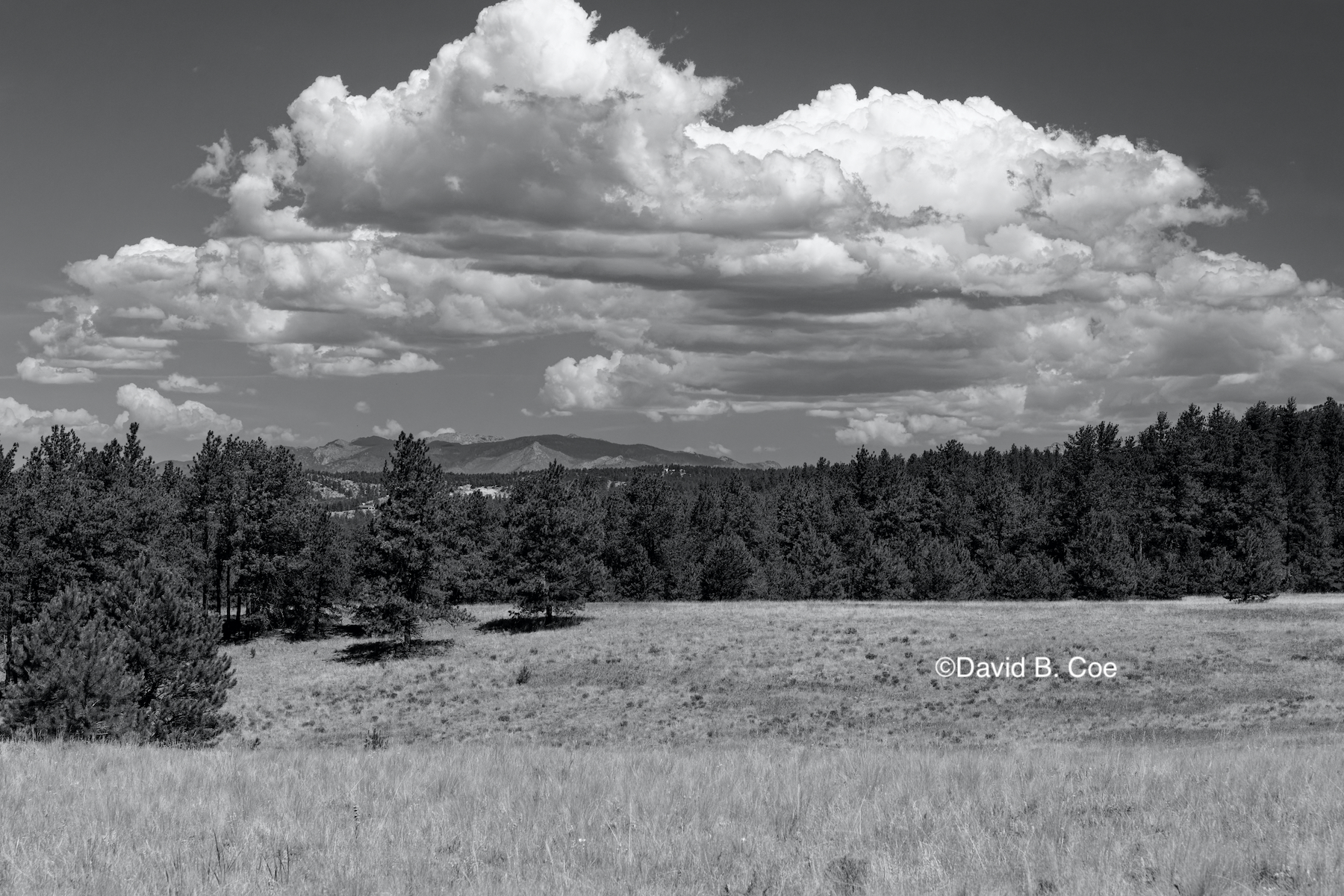 Some stores and processing centers were willing to consider special instructions — “please over- (or under-) expose slightly” or some such. But to be honest, I wasn’t good enough at that point to know with confidence that ALL my images would need the same special treatment, and so I just sent my film in and hoped for the best. More often than not, I was disappointed.
Some stores and processing centers were willing to consider special instructions — “please over- (or under-) expose slightly” or some such. But to be honest, I wasn’t good enough at that point to know with confidence that ALL my images would need the same special treatment, and so I just sent my film in and hoped for the best. More often than not, I was disappointed.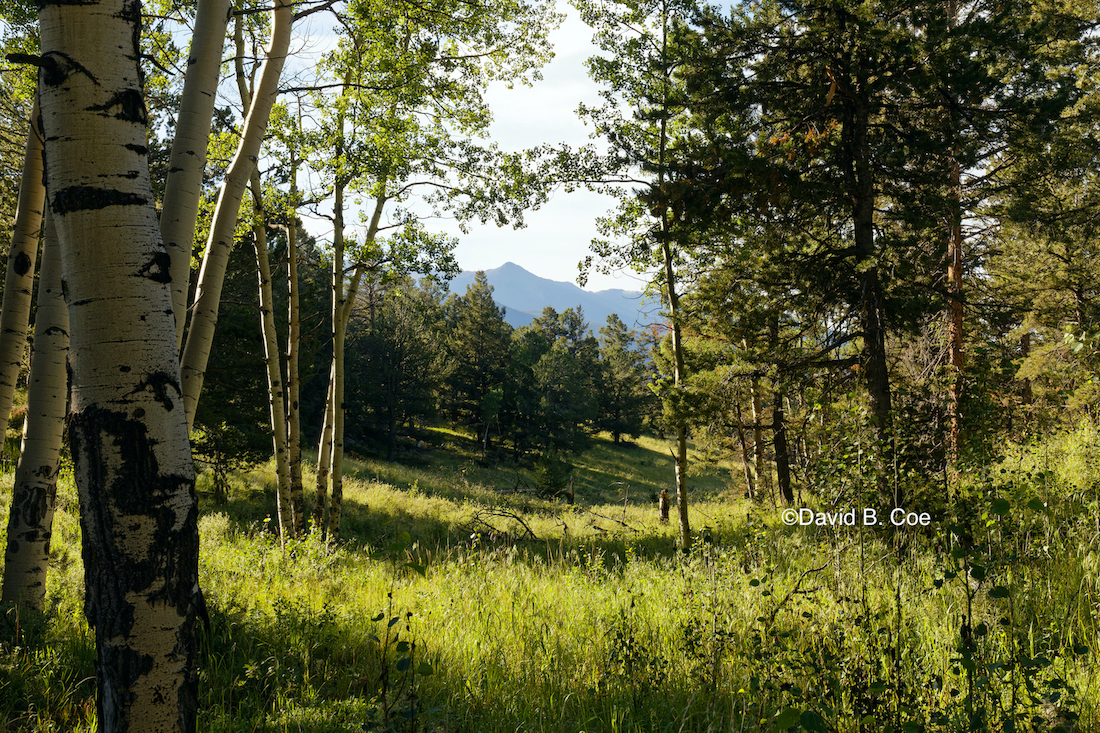 Knowing what I do about the history of photography, I now understand how strange that consumer film process actually was. The old masters of photography — Edward Weston, Alfred Stieglitz, and most notably Ansel Adams did not leave it to Kodak or Fujifilm or any other commercial entity to develop their images. They held fast to every step of the creative process, from image capture to production of the final print. Photography as an art form was not limited to a mechanical blink of creative inspiration. Rather, it relied upon a complex and time-consuming manipulation of that initial capture, to turn the photo into exactly what the artist envisioned. Adams in particular used an approach he called “dodge and burn,” relying on a masterful understanding of darkroom tools and chemicals to darken certain parts of an image and brighten others. He and his contemporaries would never have dreamed of placing themselves at the mercy of film development labs.
Knowing what I do about the history of photography, I now understand how strange that consumer film process actually was. The old masters of photography — Edward Weston, Alfred Stieglitz, and most notably Ansel Adams did not leave it to Kodak or Fujifilm or any other commercial entity to develop their images. They held fast to every step of the creative process, from image capture to production of the final print. Photography as an art form was not limited to a mechanical blink of creative inspiration. Rather, it relied upon a complex and time-consuming manipulation of that initial capture, to turn the photo into exactly what the artist envisioned. Adams in particular used an approach he called “dodge and burn,” relying on a masterful understanding of darkroom tools and chemicals to darken certain parts of an image and brighten others. He and his contemporaries would never have dreamed of placing themselves at the mercy of film development labs.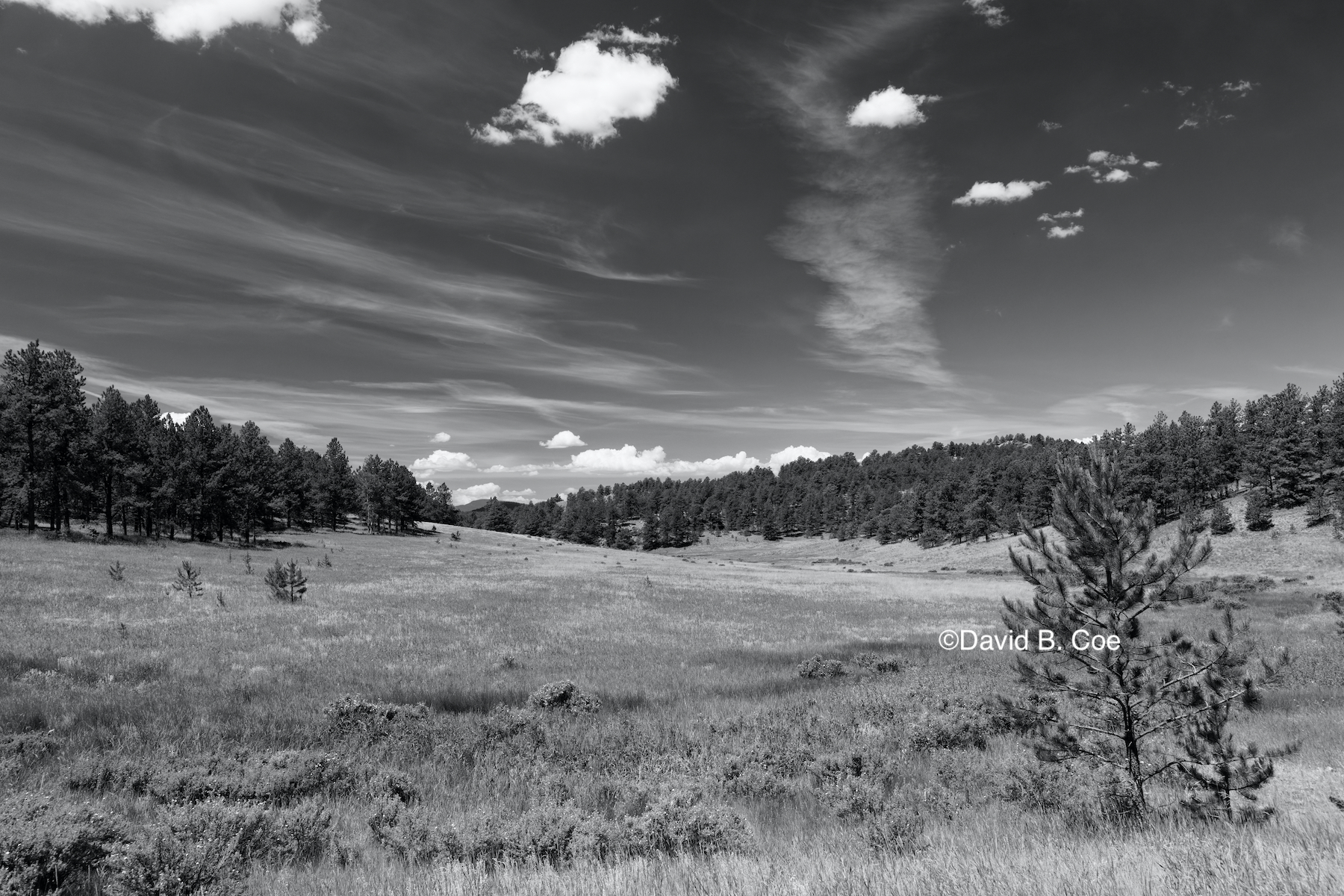 More, I no longer have to decide before going out in the field what sort of film to use. I can take an image that I know will work in color and follow it up immediately with one that I know I’ll prefer in black and white. Converting an image from color to grayscale is as simple as clicking a box. I love that freedom.
More, I no longer have to decide before going out in the field what sort of film to use. I can take an image that I know will work in color and follow it up immediately with one that I know I’ll prefer in black and white. Converting an image from color to grayscale is as simple as clicking a box. I love that freedom.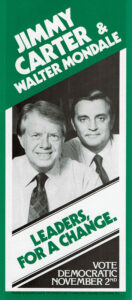 In 1976, I was thirteen years old. I couldn’t vote, obviously, but I could work for candidates I liked, passing out pamphlets and such. That’s what I did in my little (at the time) moderately conservative (at the time) hometown in suburban New York. I stood on street corners in the commercial district of our village and I handed out leaflets for the Carter-Mondale ticket. “Leaders For A Change,” they read. A message that resonated after Watergate and the hapless administration of Gerald Ford.
In 1976, I was thirteen years old. I couldn’t vote, obviously, but I could work for candidates I liked, passing out pamphlets and such. That’s what I did in my little (at the time) moderately conservative (at the time) hometown in suburban New York. I stood on street corners in the commercial district of our village and I handed out leaflets for the Carter-Mondale ticket. “Leaders For A Change,” they read. A message that resonated after Watergate and the hapless administration of Gerald Ford.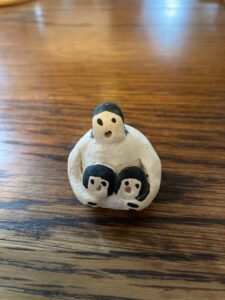 During our tour, we encountered many people selling pottery in front of their homes. And at one table, a mother displayed her wares beside those of her young daughter. I think the girl must have been around 7 or 8, give or take a year, and she had made a few small bowls, seed pots, and dishes. And she had made a tiny storyteller. As one would expect, it was quite crude compared to those we had seen for sale back in Albuquerque (we hadn’t yet been to Santa Fe or Taos), but something about the figure spoke to me. Maybe is was just that the storyteller was so cute. Or maybe it was that the girl herself was so proud of it. Or maybe I saw in this child’s early effort to follow in her mother’s footsteps something akin to my dream of becoming a professional writer. Whatever the reason, I asked the girl how much it cost.
During our tour, we encountered many people selling pottery in front of their homes. And at one table, a mother displayed her wares beside those of her young daughter. I think the girl must have been around 7 or 8, give or take a year, and she had made a few small bowls, seed pots, and dishes. And she had made a tiny storyteller. As one would expect, it was quite crude compared to those we had seen for sale back in Albuquerque (we hadn’t yet been to Santa Fe or Taos), but something about the figure spoke to me. Maybe is was just that the storyteller was so cute. Or maybe it was that the girl herself was so proud of it. Or maybe I saw in this child’s early effort to follow in her mother’s footsteps something akin to my dream of becoming a professional writer. Whatever the reason, I asked the girl how much it cost. That was a magical day in many ways. Acoma was as beautiful as we had been told, the pale red stone of the Pueblo seeming to glow beneath a deep azure sky, wooden kiva ladders rising above their structures and reaching toward the clouds. At one point, I spotted a rainbow in the clouds overhead — there was no rain, just the prismatic color, which appeared for a moment and then vanished. I think I was the only one on the tour who saw it. I believed that, together, the rainbow and my little storyteller were omens, signs that my dream would, in fact, come to pass.
That was a magical day in many ways. Acoma was as beautiful as we had been told, the pale red stone of the Pueblo seeming to glow beneath a deep azure sky, wooden kiva ladders rising above their structures and reaching toward the clouds. At one point, I spotted a rainbow in the clouds overhead — there was no rain, just the prismatic color, which appeared for a moment and then vanished. I think I was the only one on the tour who saw it. I believed that, together, the rainbow and my little storyteller were omens, signs that my dream would, in fact, come to pass. Two months later, I got my first contract from Tor Books. Children of Amarid wasn’t published for another three years — that first book needed a lot of editorial work. But I was on my way.
Two months later, I got my first contract from Tor Books. Children of Amarid wasn’t published for another three years — that first book needed a lot of editorial work. But I was on my way.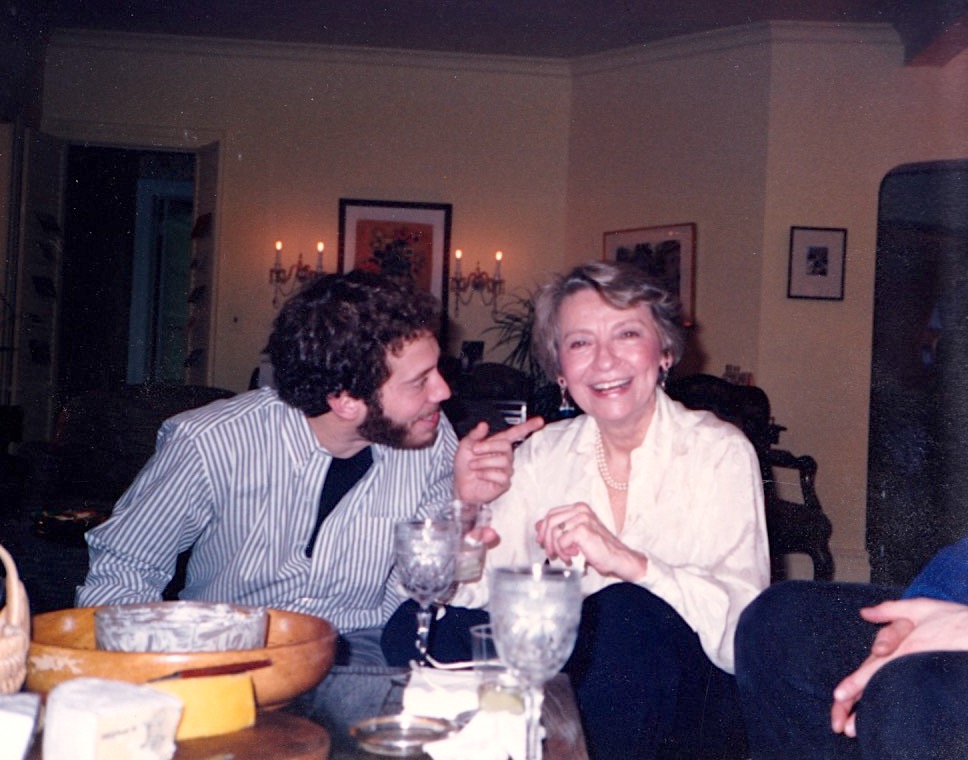 Yesterday would have been my mother’s birthday — her 101st. I’ve written about her, and my dad, quit a bit in this space, though I haven’t written about my mother in a couple of years. She was smart and funny, classy and beautiful, quietly ambitious and deeply accomplished. She doted on her children and was, in turn, doted on by my father. She loved to travel and was passionate to the point of reverence about literature and the arts.
Yesterday would have been my mother’s birthday — her 101st. I’ve written about her, and my dad, quit a bit in this space, though I haven’t written about my mother in a couple of years. She was smart and funny, classy and beautiful, quietly ambitious and deeply accomplished. She doted on her children and was, in turn, doted on by my father. She loved to travel and was passionate to the point of reverence about literature and the arts.